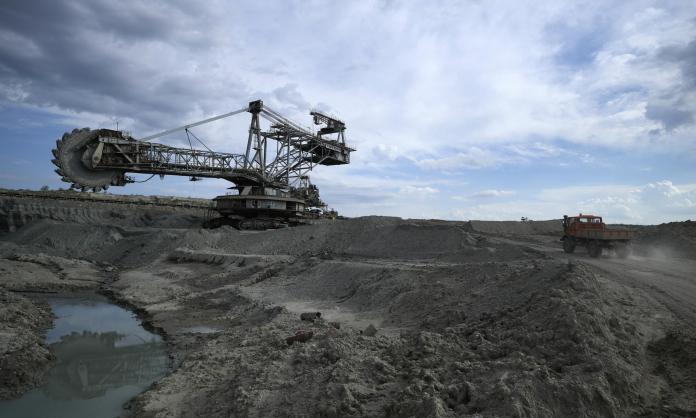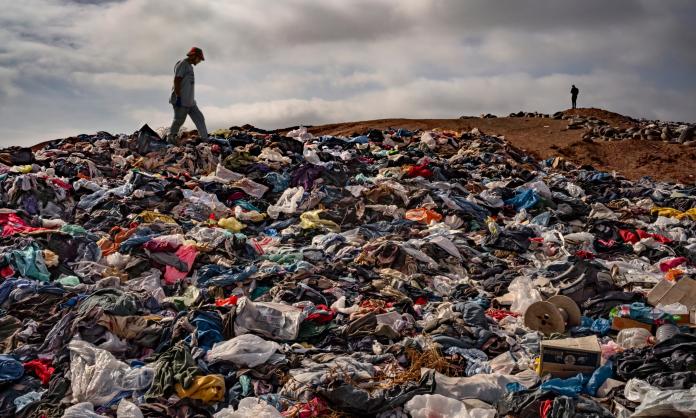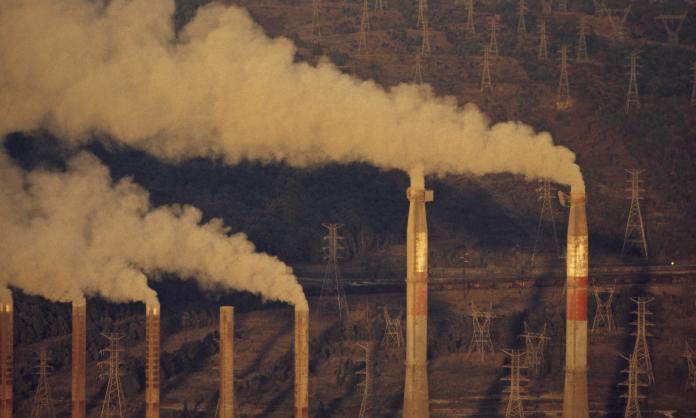Despite decades of climate research, public activism and international conferences, fossil fuels are back in vogue. Big producers are making astronomical sums of money, their share prices are going up, and new investors are pouring in. The result is that the much-vaunted global transition to renewables is, yet again, on hold.
Putin’s brutal war on the people of Ukraine has underpinned much of this shift, by radically disrupting the global trade in fossil fuels. Both Russia’s occupation and the sanctions imposed by the US have drastically forced up energy prices, to as much as fifteen times their prewar levels at some points.
Many hoped that these events might accelerate Europe’s transition towards renewable energy. Some environmental groups even bought into the resurgent militarism, arguing that investing in renewables was a way of strengthening the West against its imperial rivals.
But the opposite has proven true. The Financial Times recently reported that European governments will spend more than €50 billion on fossil fuel infrastructure and supplies in preparation for the coming winter.
Coal barons are the most immediate beneficiaries of this toxic investment binge. Europe is now spending an additional $4.5 billion on reopening old coal plants, and will import more than 13 billion extra tonnes of coal this year. That will result in a 7 percent rise in coal use, on top of the 13 percent increase last year.
Similar patterns are occurring elsewhere, as more and more governments switch to the cheaper, and more polluting, option of coal. As a result, global coal demand is expected to return to the record high achieved in 2013, and remain at that level at least until 2024.
Some commentators insist that this is all a temporary blip, a short detour on the journey to net zero by 2050. But that is utter garbage. The planet can’t afford any detours, as various signs indicate that it is already on a worse trajectory towards climate catastrophe than the UN’s Intergovernmental Panel on Climate Change might have hoped. And even in the unlikely event that the coal revival does turn out to be temporary, other elements of the European response will lock in fossil fuel consumption for decades.
This applies especially to Europe’s plans to wean itself off Russian gas. The obvious response to the volatility in energy prices would have been to invest trillions into publicly owned renewables, storage facilities and efficiency measures. This could be funded by substantially raising taxes on the wealthy, particularly the fossil fuel billionaires who have self-servingly led human civilisation to the brink of catastrophe. Just in the three months to the end of June, ExxonMobil, Shell and Chevron have raked in $41 billion in profit.
Instead, the continent is splurging tens of billions on gas infrastructure, including new pipelines, offshore gas terminals and long-term contracts. The idea is to expand Europe’s capacity to import and process gas shipped from the Middle East, North America and even Australia. Germany alone is building five offshore terminals plus an additional two permanent onshore gas processing facilities. The centre-left government—which includes the German Greens—has also just passed a new law suspending environmental assessments in order to make sure nothing gets in the way of this plan. Overall, around 25 new gas processing facilities are being built across Europe.
These plans are a disaster for the climate. Each offshore terminal costs hundreds of millions of dollars to establish and operate, with the onshore ones costing even more, which is money that will not be spent on developing renewable energy and infrastructure. More disastrously, the gas supply deals associated with these sorts of investment tend to be measured in decades. Those investing such vast sums in these projects, both governments and speculators, have an incentive to use them for as long as possible to maximise their returns, and therefore not to curb emissions seriously over that time.
Some government representatives have maintained a half-hearted pretence that this infrastructure can eventually be used for green hydrogen. But there is no evidence that green hydrogen can be efficiently produced at the scale required, nor even that the terminals and pipes can handle such a volatile material.
In a report published last November, the International Energy Association pointed out that “all evidence indicates a widening gap between political ambitions and targets on one side and the realities of the current energy system on the other”. What they are grappling towards, even if they don’t want to face it because they are invested in believing the system can change, is that the chatter about transition is political theatre to keep us distracted while the polluters pocket billions.
As if to emphasise this point, the European Parliament recently passed a motion to increase their 2030 renewables target from 40 to 45 percent, something which looks good on paper but which the constituent governments’ actions indicate they have no intention of even trying to meet.
Amid all this, Australian bosses have sniffed an opportunity. With the prices of fossil fuels soaring, there’s money to be made. Australia’s fossil fuel capitalists are now rolling out more than 100 new coal and gas projects for the highly profitable export market.
Just one example is enough to clarify what this will mean for the global effort to prevent more than 1.5 degrees of warming. In June, Prime Minister Anthony Albanese signed off on the Scarborough gas project off the coast of Western Australia. It will produce around 1.4 billion tonnes of greenhouse gases over its lifetime, which is equivalent to three times Australia’s current annual emissions. And that’s just one of 114 new coal or gas projects being pushed through in the next few years. If they all go ahead, the result will be to double Australia’s annual emissions.
The bosses are being ably assisted by their ever-loyal servants in the Labor Party. Under Albanese, the latter have mastered the European art of climate spin: make a lot of noise about renewables and pass earnest motions declaring an intent to transition, all the while entrenching fossil fuels deeper into the economy.
Wherever they can in the world, fossil fuel exporters are investing in new capacity and preparing for decades of booming profits, encouraged in part by the war in Ukraine. This is particularly concerning, because while the ruling class and its media try to pretend that the war in Ukraine is external to the regular functioning of the system, or some sort of temporary aberration, the reality is that war is a necessary and eternal part of capitalism. It is the logical and inevitable outgrowth of a society based on cutthroat competition for profits.
A war between the US and China, now widely seen as inevitable, is likely to be many times more destructive than any in human history. Already, enormous sums are being diverted into military budgets in preparation. This is money that could be used to improve society and fix the environment. Factories that could employ people to do all the things we need to transition are at this very moment being used to produce increasingly high-tech tools of mass murder in anticipation of a coming war.
The threat of war can be added to the litany of other crises the system generates every day. Open any newspaper and you will see reports of natural disasters, pandemic casualties and collapsing living standards due to inflation. Aside from their immediate impact on the lives of millions, each of these episodes acts as a shock to the system, disrupting both political and economic life in unpredictable ways.
When faced with these emergencies, the capitalists will frantically search for solutions in order to preserve the stability and profitability of their system. But such moments lend themselves to short-term fixes that are inherently rigged in favour of the rich, and do not deal with the underlying problems.
So the Queensland government is prepared to spend $2.5 billion on flood relief and reconstruction this year, but continues to subsidise the Adani coal mine that will guarantee future disasters are even worse. Governments are more desperate to subsidise and serve the industries that generate large profits in time of crisis.
Real action on climate change will mean not only ending such practices but also spending large amounts of money and resources on remedial action. Research commissioned by the UN Climate Action Champions estimates that $125 trillion needs to be spent globally to achieve net zero by 2050. That’s a lot of money at the best of economic times, which these aren’t. As inflation and interest rates rise, pressure is growing on indebted governments—i.e. all of them—to cut spending, balance their budgets and “reduce demand”. Governments that want to stick to the rules of the world financial system—again, all of them—will insist they cannot afford spending too much on things that don’t immediately improve the profitability of the economy, like schools, hospitals, welfare and avoiding environmental annihilation.
To the extent that rich nations continue to fund certain green projects, they will do so primarily for public relations purposes. They will not spend the vast sums required to phase out fossil fuels, and they certainly won’t assist poor countries to do the same.
An orderly and socially just transition away from fossil fuels amid climate breakdown is possibly the greatest challenge humanity has faced. Capitalism is a barrier to it, because such a large-scale transition requires an approach grounded in global cooperation, long-term planning and a system that values people and the planet instead of profit. As governments prepare for war while the planet burns, melts, freezes and floods, the case for socialism has never been clearer.











